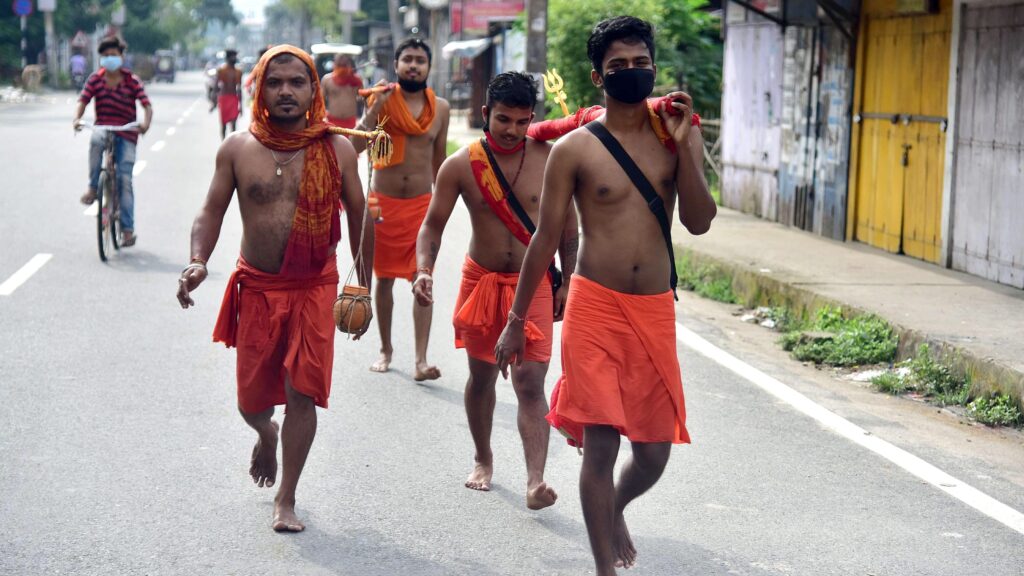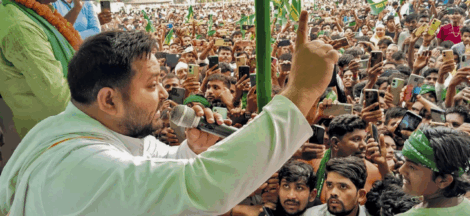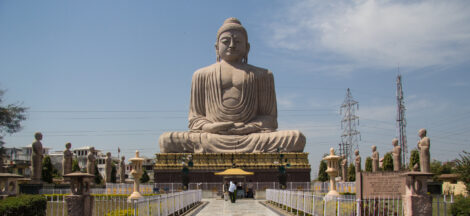Political tension has escalated in India as opposition parties have raised concerns over the Kanwar Yatra, a significant Hindu pilgrimage, during a recent all-party meeting. The discussion, held in the lead-up to the presentation of the national budget, has brought the annual religious event into the spotlight, with debates centering on its impact on public safety and logistical management.
The Kanwar Yatra, which sees millions of devotees traveling to Haridwar and other holy sites to collect sacred water from the Ganges River, has historically been a point of both religious significance and logistical challenge. This year, opposition leaders have expressed their apprehensions about the potential strain the yatra might place on infrastructure and public services, particularly in the context of budgetary allocations and planning.
The opposition’s concerns are multifaceted. One primary issue highlighted is the strain on local infrastructure, including roads and healthcare services, due to the massive influx of pilgrims. With the budget discussions approaching, opposition parties argue that insufficient planning and allocation of resources for managing the yatra could lead to significant disruptions and safety issues. They have called for a detailed review of the current plans and budget provisions to ensure adequate support for managing the event.
Additionally, opposition members have criticized the government’s perceived lack of transparency regarding the allocation of funds and resources for the yatra. They contend that while the event is of substantial religious importance, it also poses logistical challenges that require a well-coordinated response from various government agencies. The opposition argues that without adequate preparation and budgeting, the risks to public safety and infrastructure could increase.
On the other hand, government representatives have defended the preparations, asserting that comprehensive measures are in place to handle the yatra’s demands. They emphasize that significant resources have been allocated to manage the event and ensure the safety of both the pilgrims and local residents. The government has also highlighted the socio-economic benefits of the yatra, including the economic boost it provides to local businesses and the positive impact on tourism.
The clash over the Kanwar Yatra reflects broader political tensions as the government and opposition navigate complex issues leading up to the budget session. The debate underscores the challenges of balancing religious practices with public administration and resource management, especially in a diverse and populous country like India.
As the budget presentation draws nearer, the Kanwar Yatra remains a focal point of political discourse, with both sides of the aisle keenly observing the government’s response to the opposition’s concerns. The outcome of this debate could influence how future major religious events are managed in terms of public safety and budgetary planning.
The ongoing discussions about the Kanwar Yatra highlight the intricate interplay between religious practices and public administration, a dynamic that is central to the broader discourse on governance and resource management in India. As the situation continues to evolve, all eyes will be on how the government addresses the opposition’s concerns and what implications this might have for future major events and budgetary planning.




 Karnataka Govt Eyes Longer Work Hours for IT Staff
Karnataka Govt Eyes Longer Work Hours for IT Staff 